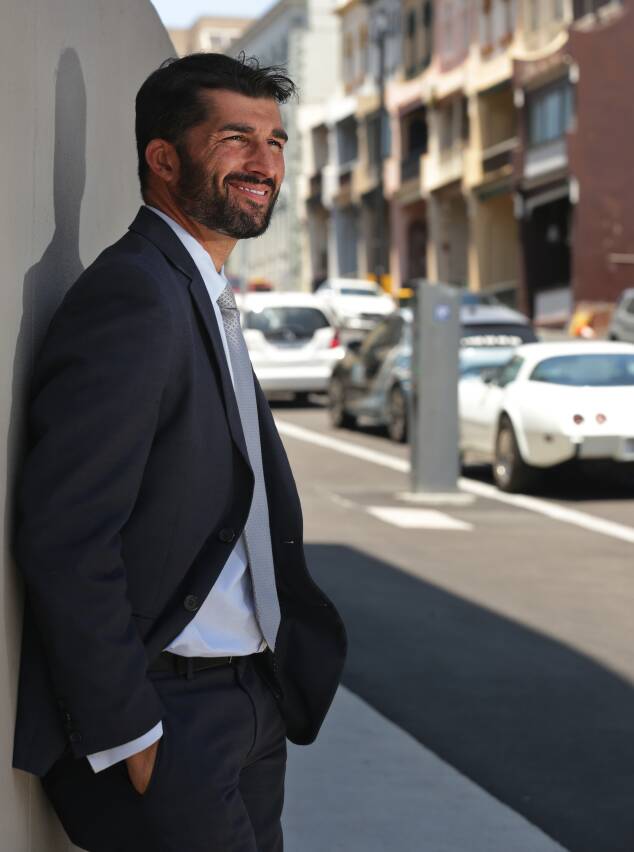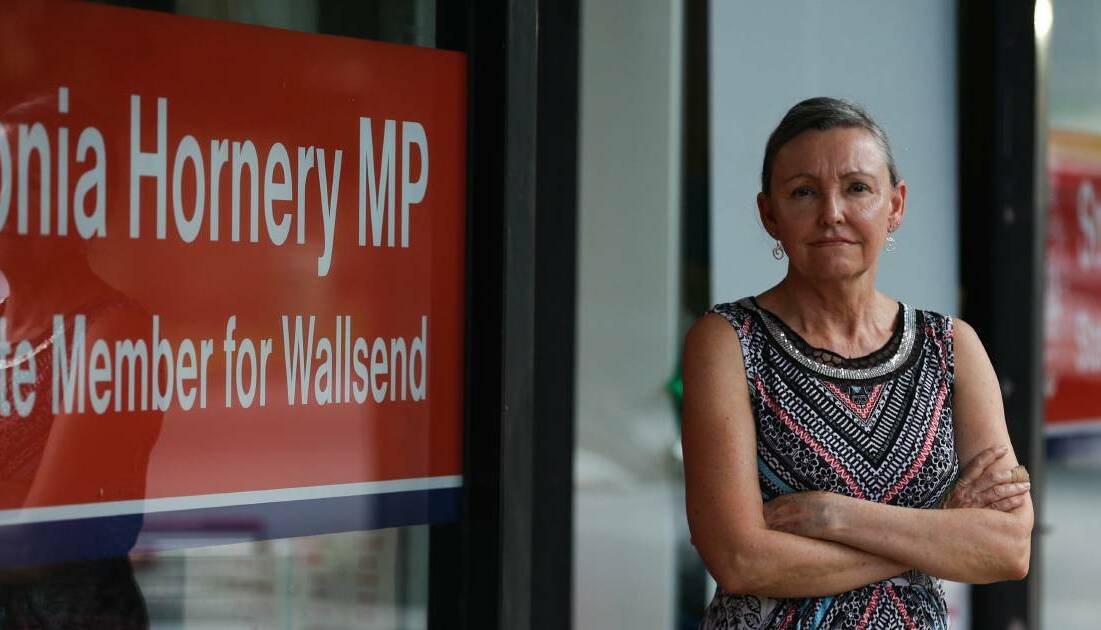
AS City of Newcastle boss Jeremy Bath celebrated "clearing" his name on Wednesday, victims of the nasty Scott Neylon letter-writing saga said the investigation outcome raised more questions than it answered.
Wallsend MP Sonia Hornery, Newcastle Maritime Museum Society president Bob Cook and residents John Beach and Christine Everingham are demanding to know the terms of reference for the investigation and why key evidence - the letters themselves - were ignored.
In a matter shrouded in secrecy, they are questioning how the public can have any confidence in the outcome, when the investigator from workplace relations firm Pinnacle Integrity did not contact the Newcastle Herald to access the 19 letters submitted since 2014, many of which remain unpublished.
"The entire investigation has been secret, hidden and flawed," Ms Hornery said.
"The terms of reference have been kept a secret, the investigators did not even have access to all the letters and the final report has been kept secret too.
"I was not interviewed as one of the primary witnesses of the scandalous letters. To my knowledge, none of the other victims of the letters or the author of the Herald articles were interviewed either."
Ms Hornery plans to write to Local Government Minister Ron Hoenig asking that the report be made public.
The investigation was launched into Mr Bath's connections with misleading letter writer Scott Neylon, who has lived in Japan for decades, after a motion by Labor councillor Carol Duncan at the July Newcastle council meeting.
Mr Bath has been best friends with Mr Neylon for 25 years. The Herald revealed in July that dozens of letters and online comments have been published in media outlets over 13 years under the name Scott Neylon, which twist the truth, distort reality and follow Mr Bath's career progression, attacking his critics and supporting his employers.
According to a motion from council's Tuesday night meeting, the investigation found "no evidence that the CEO incentivised the author to write the articles".
"Having considered the available evidence, the investigation found insufficient evidence to support the allegations," the investigation outcome reads.
In light of the findings, Mr Bath demanded a public apology on Wednesday from Ms Hornery, who used parliamentary privilege last month to accuse Mr Bath of authoring the letters, claiming he "shamefully abused" his $550,000 a year job funded by Newcastle ratepayers.
Mr Bath said his reputation had been damaged and it had been an extremely stressful time for his family.
He said the independent investigation cited evidence provided by Mr Neylon showing that he had authored the letters.
"To be clear, the independent investigation that Sonia Hornery demanded has absolved me of any wrongdoing," he said.
"Rather than wait for the outcome of the investigation, or possibly in fear that I would be cleared, she preemptively declared me guilty from within the protection of the NSW parliament, where laws exist preventing the general public from taking legal action."
In response, a defiant Ms Hornery refused to back down from her claims and said she would continue to fight for the truth.
"This is not the end of this story, and Mr Bath or Mr Neylon are not owed an apology by me and will not be receiving one," she said.
"How can the ratepayers of Newcastle trust the process of the investigation if it is so shrouded in secrecy."

Other victims of the letters said the council motion and limited detail that accompanied it caused more confusion and concern for residents who just wanted to get to the bottom of the matter.
Mr Cook, who was interviewed as part of the investigation after lodging a complaint to council, said he had no confidence in the process.
"The simple fact is the form of investigation carried out did not thoroughly investigate the information," he said.
"The investigator could only work within the bounds of the rules, which were very limited. To me the findings are inconclusive, this is not a conclusive investigation."
Retired Newcastle East Public School principal John Beach, who was also targeted by Scott Neylon, said too many serious questions remained unanswered.
"Without full disclosure of the terms of reference, and details of the methodology employed, this inquiry does nothing to resolve issues around Mr Bath and Scott Neylon," Mr Beach said.
"Rather than a resolution, this outcome simply kicks down the road the issues of secrecy and transparency which continue to swirl around this council ... This fails any test in any pub, it looks suspicious, and guarantees that probity and honesty will be the overriding issues in September's local government elections."
A City of Newcastle spokeswoman did not answer questions about why the letters were not reviewed.
She said "the allegations" were determined by Pinnacle Integrity "having regard to the council resolution", a letter from Mr Hoenig requesting the investigation and "background information provided".
"It was a matter for the conduct reviewer [Pinnacle Integrity] to determine the scope, seek access to required information and ensure the investigation was carried out in accordance with the procedure for administration of the code of conduct," she said.
"It is not appropriate for CN to comment on how the investigation was carried out."

Pinnacle Integrity also sidestepped questions about why it did not seek access to the letters.
"Pinnacle Integrity, as conduct reviewer, can confirm that the evidence relating to the matters under inquiry were sufficiently and thoroughly investigated in accordance with the procedures," a spokeswoman said.
"The investigation process and evidence relating to the matter remain confidential."
The council said it received the investigation report on December 7.
It was brought to Tuesday's meeting as a late item, meaning it was not listed on the agenda, which was published on the council website on December 8.
Liberal councillor Katrina Wark said she was shocked when the late item was announced at the meeting, as she had asked the council administration on December 11 for an update on the matter and the reply did not mention that the investigation had already concluded.
When asked why the item was not included on the agenda, a City of Newcastle spokesperson said the council's Code of Meeting Practice required a three-day notice period for listing an item.
"CN staff administering the investigation process required time to review the report and seek clarification and confirmation from the investigator on the appropriate steps to report the outcome of the investigation to the elected Council," the spokesperson said.
"This meant that when the council agenda was made available to the general public on CN's website on Friday 8 December, CN staff were not in a position to determine that report could proceed to the ordinary council meeting on 12 December.
"The only remaining option for the matter to be considered at the December Council meeting was for it to be presented as a late item of business, in accordance with CN's Code of Meeting Practice."
The Office of Local Government confirmed that City of Newcastle had informed Mr Hoenig of the investigation outcome.
"As a council employee a general manager is ultimately accountable to the council, under their employment contract, for their own conduct and performance," an Office of Local Government spokesperson said.
"The Office of Local Government does not have the authority to investigate a code of conduct complaint about a general manager."



!["[T]he First and Fifth Amendments Require ICE to Provide Information About the Whereabouts of a Detained Person"](https://images.inkl.com/s3/publisher/cover/212/reason-cover.png?w=600)



